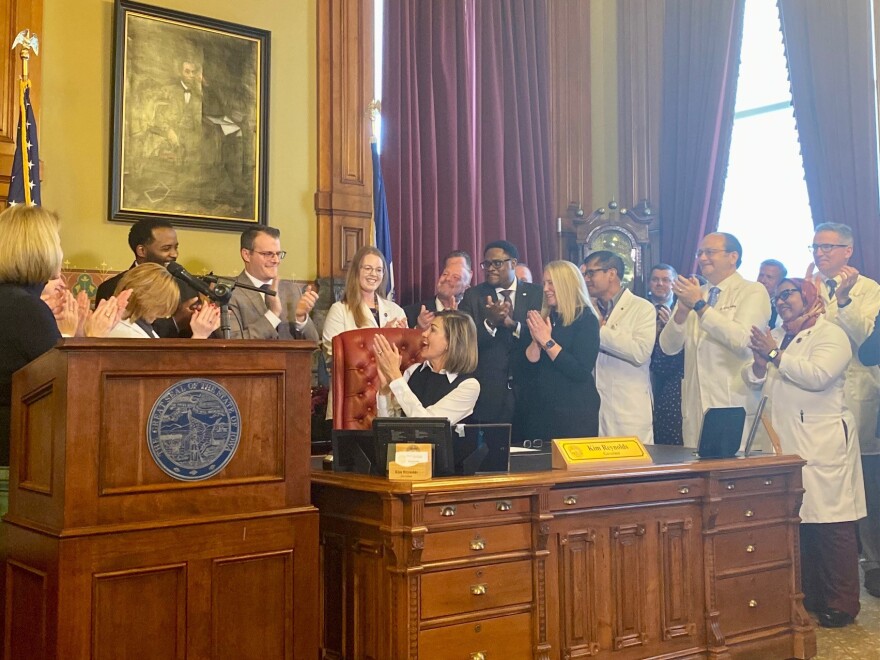Gov. Kim Reynolds signed a bill into law Thursday that limits the amount of money Iowa victims of medical malpractice can get for non-economic injuries like pain and suffering.
The new law, one of Reynolds’ priorities, puts a $2 million cap on non-economic damages awarded by a jury when a hospital is involved and a $1 million cap on non-economic damages awarded against independent clinics.
Reynolds signed the bill into law surrounded by lawmakers and health care professionals. She said it was an important day for health care access in Iowa.
“Over the last few years, I’ve heard from many hospital executives about the challenges they face when recruiting doctors,” Reynolds said. “Iowa’s record of medical malpractice cases was widely known and the biggest barrier in getting new physicians to practice in our state. Today, we’re ready to compete.”
Knoxville Hospital and Clinics CEO Kevin Kincaid said the new law is a crucial step forward in making Iowa a more attractive place to practice medicine.
“The biggest risks Iowans face in access to quality care don’t come from medical mistakes, they come from a lack of providers,” Kincaid said. “We simply do not have enough, and the need far exceeds the supply.”
House Minority Leader Jennifer Konfrst, D-Windsor Heights, said Iowa patients are the losers with the signing of this law.
“Iowans have a right to a jury trial,” she said. “They have a right to a jury of their peers to award pain and suffering damages. And that right has been taken away by special interests, particularly insurance companies who are getting a lot of benefit out of this with no real cost.”
Konfrst said Democrats tried to compromise by raising the caps and requiring insurance companies to pass savings on to medical providers, but Republicans rejected their proposals.
Capping medical malpractice non-economic damages sparked a rare public debate between Republicans as the bill was moving through the legislature, with some opponents of the bill accusing their colleagues of putting a one-size-fits-all value on people’s lives to benefit insurance companies.
In 2017, the legislature put a $250,000 “soft” cap on non-economic damages related to medical malpractice, but allowed juries to award unlimited damages in cases of substantial or permanent loss or impairment of a bodily function, substantial disfigurement, or death. The new law limits even the most severe cases to $1 million or $2 million for medical injuries that occur going forward.
Starting in 2028, the caps will increase by 2.1% each year. Economic damages and punitive damages will remain unlimited. The new law allows plaintiffs to keep 100% of punitive damages, rather than requiring 75% of punitive damages to go to a state fund.
The new law will also establish a task force to make recommendations to the legislature for reducing medical error rates.




